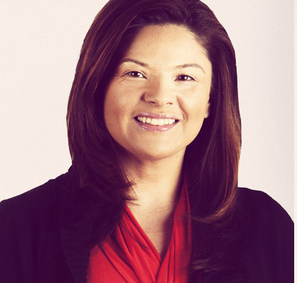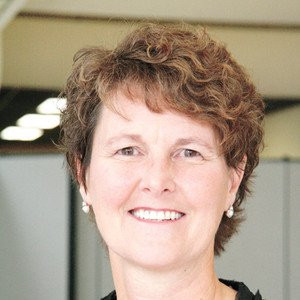Moore: Can New Ed Commissioner Wagner Handle RI?
Monday, July 13, 2015
At first blush, all signs indicate that Governor Gina Raimondo has made an excellent choice in nominating Dr. Ken Wagner as the states' new commissioner of education.
Wagner has all the professional credentials one would want in an education commissioner. He has decades of experience both inside the classroom and on the administrative level, not to mention experience at the statewide bureaucratic level in New York.
It remains to be seen however, if Wagner has the determination and the drive to stand firm and resolute in demanding education reform on behalf of the students in the state of Rhode Island against the powerful, entrenched forces that stand to benefit from keeping things exactly as they are now.
GET THE LATEST BREAKING NEWS HERE -- SIGN UP FOR GOLOCAL FREE DAILY EBLASTAll The Right Credentials
What's even better is the fact that all signs point to the fact that Wagner has his head in the right place. Wagner supports using testing as a means to measure students performance. Dan McGowan, over at wpri.com, reported this week that Wagner once told New York Magazine that “we really believe that these tests are not only important but irreplaceable."
That's encouraging. A Rhode Island Town Council President once summed it up nicely when I asked him about whether or not testing should be used as a means to measure student performance, and yes, whether or not students should have to show basic standardized test proficiency before graduating, saying "it would be nice to know that the student can read and do basic math before he receives a diploma, right?"
What's more encouraging is the fact that Wagner is considered a master of developing accurate teacher evaluations. Wagner is credited with helping develop a new, more effective teacher rating system in New York that basically relies half on how a teacher is observed in the classroom, and half on student performance--measured by standardized testing.
Teacher Evaluations
In recent years, more than 9 out of 10 teachers in Rhode Island have been deemed effective, or highly effective. Yet student achievement doesn't justify those rankings. It will be up to Wager to develop a more effective teacher ranking system, and to enforce it.
None of this is to argue that evaluations should be punitive. Instead, the evaluations should be used to show teacher how they can correct their deficiencies in order to make sure they become the best teacher they can possibly be on behalf of their students. If teachers refuse to improve, then of course that teacher should find a new career.
Wagner understands these points. The big question facing Wagner, and the rest of Rhode Island, is whether or not he has the fortitude, tenacity, and passion to stand by his principles in the face of adversity going forward.
Because rest assured, there are powerful interest groups who benefit nicely from the status quo and they're backed up by the state legislators that they've bought and paid for and therefore control.
An Education Reformer
If Wagner is going to improve education in Rhode Island, it's going to take heavy doses of courage and a steadfast resolve defending actions that are taken on behalf of the students.
The previous Education Commissioner, Deborah Gist, had good credentials and a passion for the students. But as courageous as she was, Gist was basically brow beaten into submission by the defenders of the education status quo. She took steps to improve education, but they angered teachers and their unions. Those unions then complained to state legislators, who then backed them instead of Gist.
Putting the interests of the school teachers ahead of the students isn't progressive. If it is, nobody should want to identify as a "progressive". But so often, it seems like the so-called progressive activists care more about the pay, benefits, and job security of the powerful and well-compensated public school teachers, instead of the interests of the students they've sworn to serve and educate.
Stand Up For Students
Here's a good example of what I'm referring to. Back in 2010, when the Central Falls Teachers Union refused to cooperate then-Superintendent Francis Gallo and then-Education Commissioner Deborah Gist and work together to turn the school around, the school district moved to layoff all of the district's teachers and replace them with teachers who wanted to be part of the solution.
It was immensely frustrating that almost all of the outcry around the situation was aimed at the reformers who were trying to improve the school district. Angus Davis, the technology innovator who was then a member of the state's Board of Regents for Education, summed the situation up nice in an inspiring speech to the Rhode Island Statewide Coalition (the precursor to the RI Taxpayers Association) back in 2010.
"What kind of leadership thinks the basic question about a school in which only half of children graduate and 90% can't do basic math — what kind of leadership thinks that the basic question involves job security for its adults rather than the educational outcomes for its children?"
That's the question we need to be asking ourselves in Rhode Island now, and as we go forward, because schools exist to educate students, not to placate teachers.
We know Wagner has the right attitude and credentials. Let's hope he has the courage to stand up for our students.
Russell Moore has worked on both sides of the desk in Rhode Island media, both for newspapers and on political campaigns. Send him email at [email protected]. Follow him on twitter @russmoore713
Related Slideshow: RI Experts on the Biggest Issues Facing Public Education
On Friday November 22, the Hassenfeld Institute for Public Leadership at Bryant University, the Latino Policy Institute of Roger Williams University, the Rhode Island Association of School Committees, the Providence Student Union, and RI-CAN: Rhode Island Campaign for Achievement Now will host Rhode Island leaders in the public and nonprofit sectors for a symposium on "the civil rights issue of the 21st century, adequacy and equity and the State of Education in Rhode Island."
Weighing in on the the "three biggest factors" facing education in the state today are symposium participatnts Gary Sasse, Founding Director of the Hassenfeld Institute for Leadership; Christine Lopes Metcalfe, Executive Director of RI-CAN; Anna Cano-Morales, Chairwoman of the Board of Trustees, Central Falls Public Schools and Director, Latino Policy Institute at Roger Williams University; Tim Duffy, Executive Director, RI Association of School Committees; and Deborah Cylke, Superintendent of Pawtucket Public Schools.
Related Articles
- Moore: Elorza Should Prioritize Students, Not Trolleys
- Moore: Elorza Shows Bravery by Taking on Firefighters
- Moore: Mattiello Must Leave Pawsox Fate Up To Voters
- Moore: Call on Mattiello to Pass Ethics Bill
- Moore: Elorza’s Budget is a Bridge To Nowhere
- Moore: Ask Not Who the Toll is For; It’s For You
- Moore: Legislature Recesses! Is Worst Yet To Come?
- Moore: Mello Takes Over a Fire Department In Turmoil
- Moore: RI Republicans Forfeit Credibility
- Moore: Will Magaziner Protect Rhode Island or Wall St.?
- Moore: Elorza Must Pursue Pension Reform














